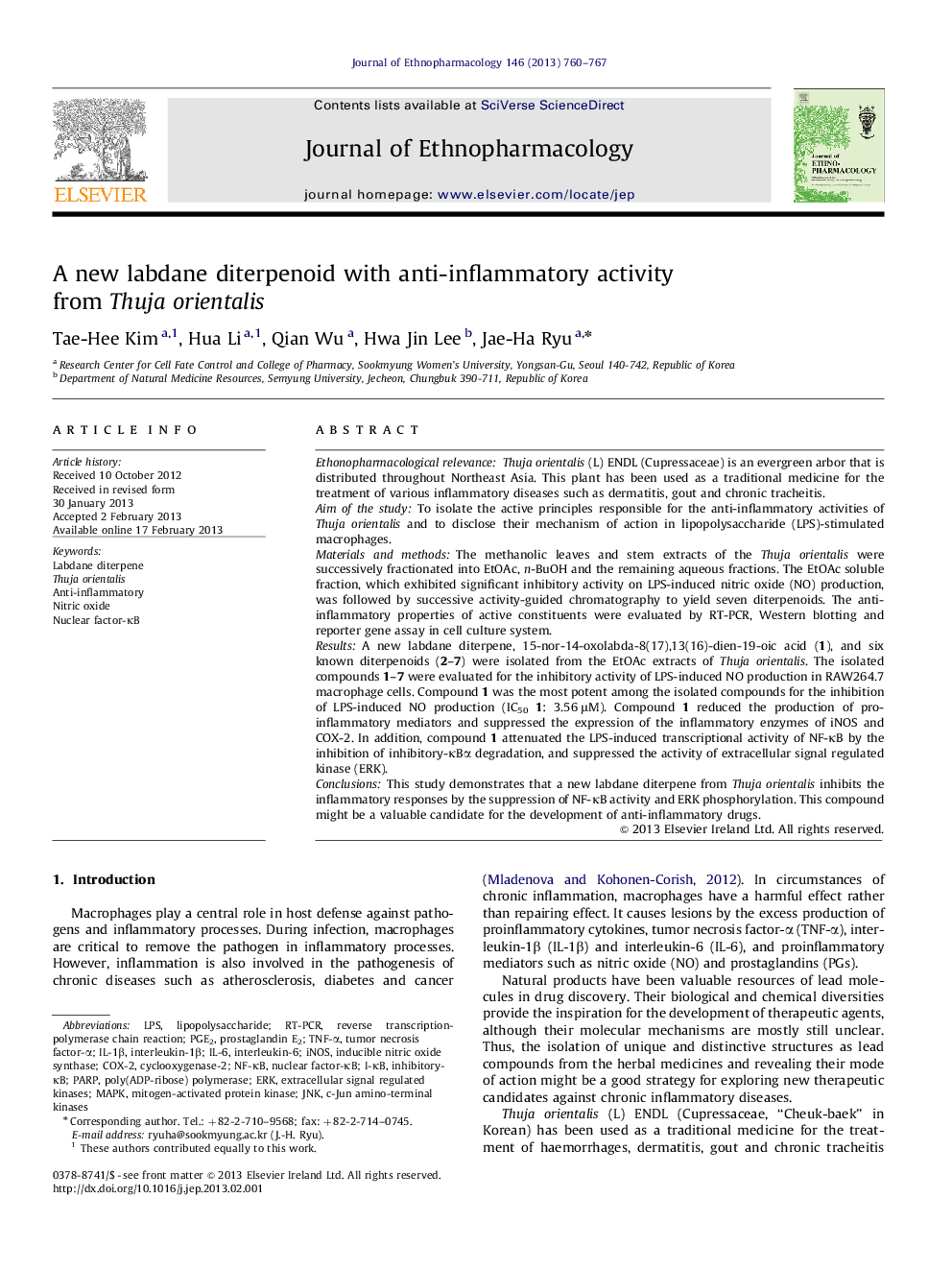| کد مقاله | کد نشریه | سال انتشار | مقاله انگلیسی | نسخه تمام متن |
|---|---|---|---|---|
| 2545486 | 1123959 | 2013 | 8 صفحه PDF | دانلود رایگان |

Ethonopharmacological relevanceThuja orientalis (L) ENDL (Cupressaceae) is an evergreen arbor that is distributed throughout Northeast Asia. This plant has been used as a traditional medicine for the treatment of various inflammatory diseases such as dermatitis, gout and chronic tracheitis.Aim of the studyTo isolate the active principles responsible for the anti-inflammatory activities of Thuja orientalis and to disclose their mechanism of action in lipopolysaccharide (LPS)-stimulated macrophages.Materials and methodsThe methanolic leaves and stem extracts of the Thuja orientalis were successively fractionated into EtOAc, n-BuOH and the remaining aqueous fractions. The EtOAc soluble fraction, which exhibited significant inhibitory activity on LPS-induced nitric oxide (NO) production, was followed by successive activity-guided chromatography to yield seven diterpenoids. The anti-inflammatory properties of active constituents were evaluated by RT-PCR, Western blotting and reporter gene assay in cell culture system.ResultsA new labdane diterpene, 15-nor-14-oxolabda-8(17),13(16)-dien-19-oic acid (1), and six known diterpenoids (2–7) were isolated from the EtOAc extracts of Thuja orientalis. The isolated compounds 1–7 were evaluated for the inhibitory activity of LPS-induced NO production in RAW264.7 macrophage cells. Compound 1 was the most potent among the isolated compounds for the inhibition of LPS-induced NO production (IC501: 3.56 μM). Compound 1 reduced the production of pro-inflammatory mediators and suppressed the expression of the inflammatory enzymes of iNOS and COX-2. In addition, compound 1 attenuated the LPS-induced transcriptional activity of NF-κB by the inhibition of inhibitory-κBα degradation, and suppressed the activity of extracellular signal regulated kinase (ERK).ConclusionsThis study demonstrates that a new labdane diterpene from Thuja orientalis inhibits the inflammatory responses by the suppression of NF-κB activity and ERK phosphorylation. This compound might be a valuable candidate for the development of anti-inflammatory drugs.
Figure optionsDownload high-quality image (82 K)Download as PowerPoint slide
Journal: Journal of Ethnopharmacology - Volume 146, Issue 3, 19 April 2013, Pages 760–767